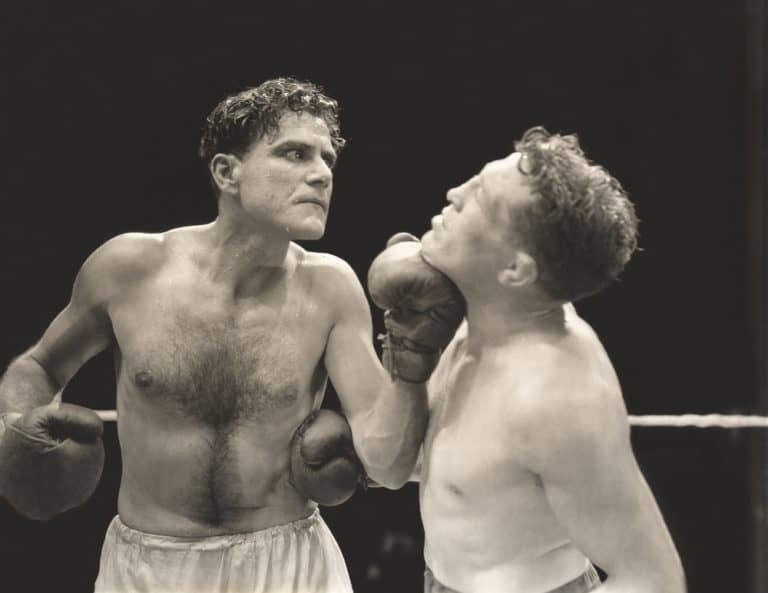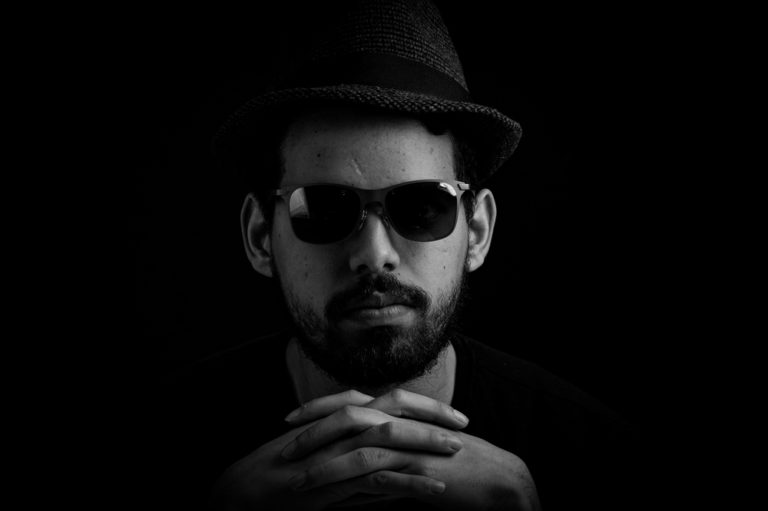Should you sacrifice sleep for success?
Hard work pays. The grind never stops. Go hard or go home. Hustle. Graft. Push. Do more stuff. Sacrifice. Cut out everything that isn’t making cash. It’s all a bit extreme eh!
It seems apparent that hard work over time is maybe the most important determinant of success in business and in life. Take anyone with a certain level of intelligence and skills and experience. Get them to work harder- and they will become more successful.
And yet, there are of course things in life that matter other than being successful and reaching your professional goals. Where do you draw that line? After all,
“If you are dead, you are out of business!”
Gary Vaynerchuck
I have done some research into the topics of sleep and productivity. My goal is to analyse fully both literature and anecdotal experience. Hopefully, you will learn something about the extent to which sleep could and should be sacrificed for a successful career or business.
A look at the science- how much sleep do you really need?
For this article to be worth anyone’s time, we have to start with the science. I have heard from friends and colleagues in the past that we need 6 hours, 7 hours, 8 hours, 4 hours- It’s probably best to check what the actual data says!
David Dinges, of the University of Pennsylvania, has been studying the effects of sleep deprivation for over 30 years. In one of his most cited experiments, he took 48 adults and made them sleep under laboratory conditions for 2 weeks.
One group was given 8 hours of sleep every night.
One group 6 hours per night.
One group 4 hours per night.
Every 2 hours during the day for 14 days, the subjects were then tested on their ability to maintain attention. Dinges found that in the group which got 8 hours of sleep per night, there was no cognitive decline whatsoever over the 14 days of study.
The group getting 6 hours per night and the group getting 4 hours per night only reported slight changes in “How tired they felt”. But the attention of the 6-hour group steadily declined throughout the 14 day period, and the attention of the 4-hour group declined even more significantly! The 4-hour group where the attention equivalent of “Legally drunk” by the end of the study, and participants from both the 4-hour group and the 6-hour group were falling asleep at the computer within 6 days.
What is interesting to me is that the subjects who were clearly thoroughly sleep-deprived and a shell of their best selves reported to only feel slightly more tired.
It was their performance, not their feeling, which painted the real picture.

This article published by the National Institutes of Health Is a great read for anyone who wants to understand sleep from a biological perspective. In it the writer makes two interesting points about sleep:
- Your need for sleep, and sleep patterns, change dramatically as you age. The requirements of your mind and body as a child or teenager are very different from those when you are more developed. Babies average 18 hours of sleep per night, whereas adults over 60 average just 5 hours of sleep per night.
- Your need for sleep varies significantly across individuals of the same age. There is no magic number of hours of sleep that works for everybody.
It is this second point that explains the apparent disparity between self-development culture and the research of people like David Dinges. You’ve got people like Kobe Bryant dominating the league on 4 hours of sleep per night, then you’ve got most of the people from the study above sleeping for 6 hours per night for a week and falling asleep at the computer!
Read also: What is a man’s purpose in life?
Advice from successful people on sleep
Scientific studies are one way to go about evaluating sleep. One other way you can go about it is to pick the brains of the successful. How do the great men and women of our time think about sleep?
Here are 3 examples, taken from all over the internet, of the sleep habits of the highly successful.
Helena Morrissey (now known as the right honourable Baroness Morrisey) was the financial times’ 2017 person of the year. She was the CEO of Newton Investment Management for 15 years, she founded the 30% club, and she has nine children. She sleeps for 6 hours per day.
Sir Winston Churchill needs no introduction. Former British prime minister, writer, painter, historian, Nobel Prize winner. Winston Churchill famously took a two-hour nap at 5 pm every day. He averaged around five hours of sleep per day in total. Churchill said this short nap allowed him to squeeze “one and a half days work” out of every 24 hours!
Tobias Lutke is the CEO and founder of the company Shopify. His current net worth sits at around 12.7 billion dollars US. He once wrote on Twitter “I need 8ish hours of sleep a night. Same with everybody else. Whether we admit it or not”.
Everybody is different- You will know how much sleep you need
The fact that everyone is slightly different, means that it really can only be you who decides the most productive sleeping pattern to adopt. No one else has any way of knowing.
Elon Musk, in one of his appearances on the Joe Rogan Podcast. Said that he gets 6 hours of sleep per night. He tried to operate on less for a time, but he found that his total productivity decreased. We will all experience this point somewhere- the point at which you will be much less productive, less healthy and more stressed by getting any less sleep.
For Musk it’s 6 hours, for Churchill 5, for Lutke 8. No one can tell you exactly how much sleep you need to be at your best. You must feel it out, discipline yourself, and come to your own honest conclusions!
Playing the long game- Is it smart to go without sleep?
There are opportunities in this world that need to be grabbed with both hands when they appear. We all have deadlines, and we all find times where there just aren’t enough hours in the day to do what needs to be done.
Could you sleep for 3 hours one night, to finish a project with a lot at stake? Yes, you could. Could you not sleep for a night, to fix an issue that needs to be fixed by tomorrow in order for a product launch to go ahead? Probably.
Could you sleep for 3 hours for 2 nights? Probably
3 nights? Maybe. But there’s the question of can you, and the question of should you.
Think back to Dinges’ research. Never mind how you feel- his subjects in the experiment only felt slightly more tired than those with a lush nights sleep. How will you function? How will you perform? How close to your optimum are you going to be operating? Can you really afford to represent yourself without half of your usual focus and brainpower?
Going without significant sleep by your own standards, for more than one or two days at a time, for anything other than an all or nothing opportunity, seems to me like a foolish game. It is trying to find a professional advantage at the expense of your own mental capacity and health. That’s something that I’ve hardly touched on- How many years of your life are you losing by pushing your bodies basic needs in this way?
I know that success requires sacrifice. Any time you can plough into your hustle will move you forward. But there’s plenty of aspects of your life, that arent as absolutely essential as going to sleep every night, that you can look at reorganising to find more time and energy.
Read also: How to be feared and respected
4 things that you could sacrifice before you have to play with your own sleep
- What is a weekend?
It is a biological fact that you need sleep, or you will break down. But look at how your weekends are structured. The days you are not employed by someone else, or “In the office” if you work for yourself. What is the priority on those days? Brunch? Gym? Spooning your Mrs? When I need to find time to push somewhere, I usually find it on the weekends.
- What is a vacation?
How much time and money do you spend skiing? Or on a beach? Or at sports games? Or doing whatever it is you do on holiday? Sure you need rest, but you can get rest by taking 1 day a month to stretch and eat and sleep. No one needs to leave the country or do shots or go on a boat. That is a choice you have made.
“You want a 1% life, but you aren’t willing to put in a 1% work ethic”- Gary Varnerchuck
- What do you spend your money on?
I have two friends. One makes around £30k a year, max. Probably less. He lives with his parents, and he lives a pretty simple life. He eats salad, and MacDonalds quite a lot. He will probably, this year, put 100 thousand pounds in the bank for the first time.
I have another friend, who is a super-intelligent engineer type. He is set to earn a 100k salary this year before tax. It’s pretty impressive. He has significantly less money in the bank than my other friend.
Any pound you dont spend on food, clothes, weird sh!t that doesn’t matter is a pound you can invest into a better life.
- How many things are you trying to juggle at once?
As a strong, smart, intelligent person, you can do anything. But you can’t do everything. In order to achieve your potential in any specific domain, you’ve really got to focus on maybe one or 2 things and forget about the rest. This philosophy is something that I took straight from steve jobs. Here is the quote from Apple’s head of design, Jonny Ive, that really made me think:
“Steve was the most remarkably focused person I’ve ever met in my life…You can achieve so much when you truly focus…One of the things that Steve would say, how many things have you said no to? …What focus means, is saying no to something that you, with every bone in your body, think is a phenomenal idea. And you wake up thinking about it, but you say no to it because you’re focused on something else”
More top work on sleep and success
Probably the most prominent, most respected book on the science of sleep is Why We Sleep, by neuroscientist Matthew Walker. You can read more about the book on Amazon (Link to Amazon).
When writing this article, I found this online leaflet incredibly helpful. It is a great summary of the current science on sleep, circadian rhythms, the sleep cycle, and how much sleep people need throughout their lives.
My favourite books of all time, for success and inspiration in general, were recently covered in a recent article. You can check it out here- Too cheap for therapy? Read these books!






